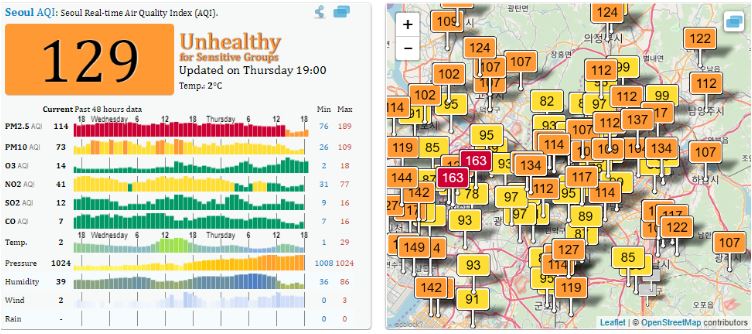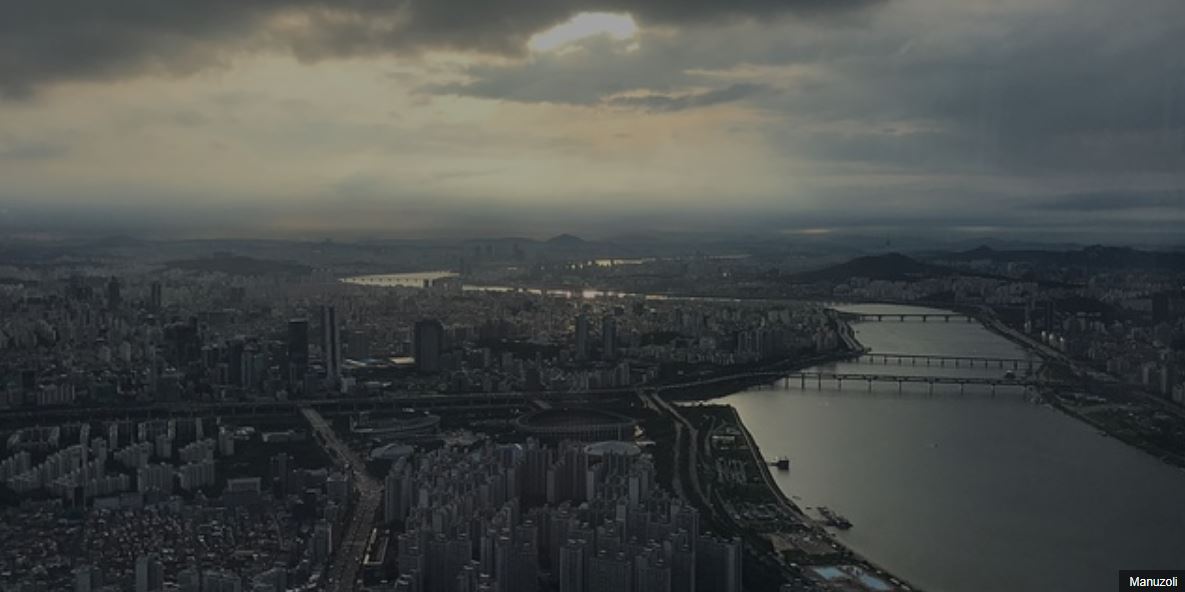[Netherlands_Progrss] Seoul’s Air is So Polluted that Public Transportation is Free
Seoul’s Air is So Polluted that Public Transportation is Free
READING TIME: 2 MINUTES
See the Original(Click Here)
Screenshot of a pollution map pointing to the different types of pollution around Seoul. (Courtesy of The South Air Korea Environment Corporation)
The measure was enforced after fine dust concentration reached 50 micrograms in the capital, which is considered harmful to humans. The city used the same measure previously when pollution in the city reached a whopping 179 micrograms per cubic meter. City officials have tried to prevent the increase of pollution before by limiting the usage of cars across the city by public officials, closing some 360 parking lots and reducing construction work in government-funded projects. And while providing free transport may lower pollution levels in the city, traffic congestion decreased by a mere 1.8 percent and cost the city 4.8 billion won ($4.5 million) for one day alone.
Surprisingly, not everyone is satisfied with the city’s decision to provide free transport to Seoul residents. Chung So-dam, a 34-year-old resident of Gwanak-gu in southern Seoul disagreed with the move to solve the city’s problem with pollution. “This is a waste of taxpayers’ money; the city needs to invest in long-term solutions to reduce fine dust in the capital.” An office worker in her 30s told the Korea Times that the city’s measure could have long-term benefits for commuters. “Soaring gas prices is a burden.” she said. “By taking advantage of the free transportation in the long run we could save commuting money.”
Other cities like New Delhi have also fallen victim to high levels of pollution and dust concentration. Late last year, New Delhi officials declared that the air in the city was 75 times more dangerous than the World Health Organization recommends, leading to city-wide panic. Some residents, alternatively dubbed “pollution migrants,” fled the city in an attempt to get as far away as possible from the city’s toxic air.
Seoul isn’t the first city to provide its citizens with free transport. Earlier this month, Dunkirk in France announced that it would provide public transport free of charge to all residents of the French city. Officials in Dunkirk believe that transport in cities is as much of a right as receiving an education, which led to the move.
